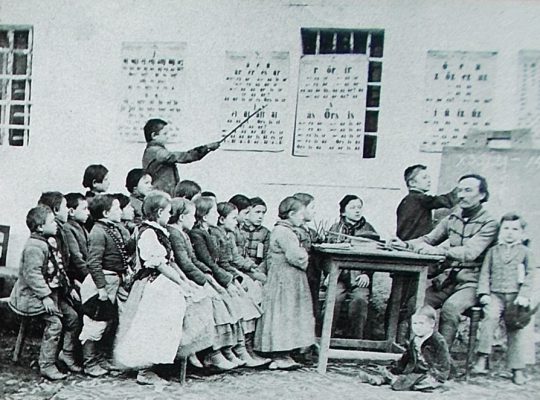
Once upon a time I was a teacher. A regular ‘according-to-Holye’ teacher of English, History, Government, and Economics in public high schools. The reasons I am no longer a teacher are relatively simple and boring. I couldn’t find a full-time position in the place that I grew up in and that I loved.
This other Eden… demi-paradise… this precious stone… set in the silver sea of this earth, this ground… this Grand Rapids.
The Acton Institute had such a position. It was and is a place where a lot of reading, writing, thinking, and talking happens. A place of teaching and learning.
And let me tell you a secret: There’s more reading, writing, thinking, and talking (more teaching and learning) going on here than in any place I’ve been an ‘according-to-Hoyle’ teacher.
Why this is the case is complicated.
Bryan Caplan, economist at George Mason University, in his recent book The Case Against Education exhaustively documents how little we retain of the things we are taught in our schooling. We learn little of what we are taught and we retain even less of it.
Why is that?
Why can I not remember the quadratic equation, which I was taught and tested on, while I remember that Merlin, in the 1981 film Excalibur, said, “Looking at the cake is like looking at the future, until you have tasted it what do you really know? And then, of course, it’s too late”?
I saw this film once. At a sleepover in 1997. And yet I remember. It reminds me that, as Hayek said, “[We] live as much in a world of expectation as in a world of ‘fact,’…”
I have used and reflected upon that knowledge much more in my life than I have the quadratic equation. Your mileage may vary.
We learn by doing, reflecting, and applying. And we retain by doing the same.
B.K.S. Iyengar, one of the key figures in Yoga’s introduction to the West, in his book Light on Life put it best,
Life is a series of discrete transformations… Change leads to disappointment if it is not sustained. Transformation is sustained change, and it is achieved through practice.
St. Paul saw the church in this same sort of way, as a community of teaching and learning,
And he gave some, apostles; and some, prophets; and some, evangelists; and some, pastors and teachers; For the perfecting of the saints, for the work of the ministry, for the edifying of the body of Christ (Ephesians 4:11-12)
The church, as both an institution and as the people of God, is unique and has a unique mission. An integral part of that mission, that religious practice, is teaching and learning.
What we do here at the Acton Institute is to teach and learn about the Free and Virtuous society (See Dylan Pahman’s excellent Foundations of a Free and Virtuous Society). We are and seek to create students of freedom and virtue. Leonard Read, founder of FEE, is instructive here,
In searching for a student of liberty, the search must be within oneself. In the world of persons, it is only within each of us that the fertile, explorable areas exist. The best explorer of oneself is oneself. It is not possible to impart to others that which we do not possess.
It is only in learning and continuing to learn, through practice, that we teach.
This is how we change, and if we keep on changing we’ll be transformed. Through transforming ourselves we can’t help but transform our world.
All it takes is practice.

